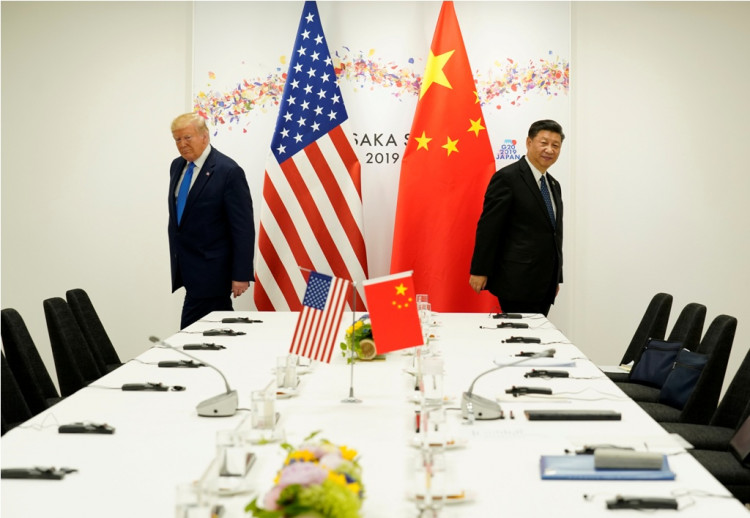U.S. President Donald Trump claimed after China posted a 27-year-low GDP growth for the second quarter that it was thanks to his tariffs the Chinese economy suffered. However, some experts stressed that the American chief seems to have misinterpreted the matter.
Veteran journalist and Executive Director of think tank the Hong Kong-APEC Trade Policy Study Group, David Dodwell, wrote in a Monday op-ed in the South China Morning Post that while the trade war did have an effect on China, the country's debt may be the biggest reason for the decline.
Dodwell's opinions are very much contrary to what Trump has been claiming. However, based on data from the Institute of International Finance (IIF), China's debt levels saw a hike of over 300 percent this year.
China's debts are internal problems that the government has been trying to manage over the past years. This means Trump's claims of his tariffs being the reason for the Chinese economy's decline could be a far cry from reality.
It is true that American tariffs made some businesses suffer, tax duties under the China-U.S. trade war are still trivial compared to the government's battles with cracking down on debts.
Dodwell and many other economic experts believe a slowdown in an economic expansion is necessary so China can achieve long-term stability in the long run. Economists argued that the Chinese economy has been doing fairly fine even with a Q2 GDP of only 6.2 percent.
Compared to other countries, China's Q2 GDP growth still accounts for a huge chunk of the world's overall expansion. The economy did slow down and the trend will affect other ASEAN countries that rely on the world's second-largest economy for growth.
Experts further explained that there is no solid evidence pointing to U.S. tariffs and production migration away from China as the reasons for the country's economic decline. In fact, experts believe the effects of the trade war will push countries like China towards self-dependency - move that could spell danger for the United States.
Earlier this month, it was indicated that China is already on the move as tensions with the U.S. ensued. The country has started creating its very own tech environment - one that the White House cannot infiltrate.
The news came amid Washington's seemingly endless tirades against Chinese tech giant Huawei. Beijing has been calling on the White House to lift its blanket ban on the company and while a reprieve was announced by Trump himself, no details have been revealed yet.
Economists believe that if China can build a self-sufficient economy through innovative technology, other countries will have the grit to attempt the move as well. If this happens, the U.S. may no longer be a number one trading partner for many nations.





